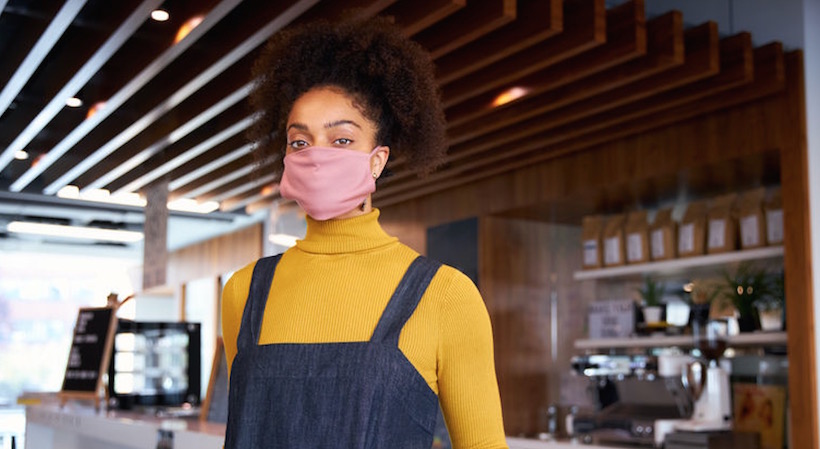COVID-19 has had a major impact on U.S. small businesses, especially Main Street establishments, such as retail stores and restaurants. Recent data published in the “SCORE Megaphone of Main Street: The Impact of COVID-19” data report suggests that while nearly every business has been impacted by the pandemic in some way, minority-owned small businesses, specifically Hispanic- and Black-owned businesses, have been disproportionately impacted due to numerous factors including more direct contact with the virus (friends, staff and family contracting COVID-19), increased lack of childcare and an inability to secure financing.
Regardless of their background, entrepreneurs and small business owners can combat the impact of COVID-19 by taking advantage of free small business resources, such as the SCORE Small Business Resilience Hub. They can also connect with an expert SCORE mentor (for free) who can support their efforts to secure financing and help them decide how best to move forward.
StartupNation exclusive discounts and savings on Dell products and accessories: Learn more here
Setting the stage on Hispanic entrepreneurship
Prior to 2020, Hispanic entrepreneurship was on the rise.
As of 2017, 5.6% (322,076) of all U.S. businesses were Hispanic-owned, according to the 2018 Annual Business Survey released by the U.S. Census Bureau. Despite the U.S. having a 16.7% Hispanic population, this demographic is still vastly underrepresented among business owners. And yet, Hispanic entrepreneurs have continued to demonstrate strong growth, outpacing other groups in recent years.
Recent studies, including the same 2018 Annual Business Survey conducted by the U.S. Census Bureau, show Hispanic-owned businesses reporting an average revenue growth of 14%, outpacing the growth of the U.S. economy in recent years. However, when the pandemic hit in March 2020, Hispanic-owned small businesses were especially affected.
Minority-owned businesses concentrated in hardest hit sectors
According to the aforementioned Megaphone of Main Street report, in March 2020, when public health officials began instituting social distancing and requiring businesses to shut down or limit services, some of the hardest hit sectors that reported business losses were the industries inclusive of hospitality (down 35%), construction (down 27%) and food services (down 22%).
These are many of the same sectors with the highest concentration of Hispanic business owners, according to the U.S. Census 2018 Annual Business Survey. According to the survey, the top sectors for Hispanic-owned firms were construction with 15.6% (50,187) of all firms, followed by accommodation and food services with 13.0% (41,817).
The Megaphone of Main Street report shows that while the need to modify services had a major impact on nearly all small businesses (48.7% of all small businesses report operating at a loss today), minority-owned small businesses reported an even greater loss. Specifically, 52.8% of Hispanic small business owners report operating at a loss today, compared to 29.9% pre-COVID.
Related: WJR Business Beat with Jeff Sloan: Minority-Owned Businesses Hit Hardest by Pandemic
Minority small businesses more likely to report COVID-19 has directly impacted family and staff
Per the Megaphone of Main Street COVID-19 report, Black and Hispanic small business owners are twice as likely to report that COVID-19 and other health conditions have directly impacted family and staff, therefore directly impacting business.
Across the board, minority small business owners reported being significantly impacted by the new requirement to work remotely, COVID-19 infection of family or staff, and lack of childcare. Specifically, lack of childcare is a significant unmet need, with 21.4% of Hispanic small business owners citing lack of childcare as having a significant impact on business operations; a rate two-and-a-half times more often than their white counterparts (8.8%).
When asked about lack of childcare being a significant issue, here is what several Hispanic small business owners who participated in the data report had to say:
“It has been difficult to work while having to take care of the children at the same time. Unfortunately, I had to bring my children along on a regular basis in order to do what I had to do.”
“Lack of childcare has had a huge impact on the availability of staff to take clients.”
“Finishing the school year took a big chunk of my time to help my elementary school kid to complete her coursework online. Summertime was impacted due to the decision of no summer camps and kids at home.”
Black and Hispanic business owners more likely to apply for funding; less likely to receive
Despite pursuing both government and private funding at higher rates, according to the Megaphone report, Black and Hispanic small business owners were less likely to receive help.
While 46.7% of Hispanic small business owners applied for new loans, only 39.1% received new loans. When 26.5% of white small business owners applied for new loans, there was a 54.2% success rate. Similarly, Hispanic small business owners had trouble securing new investors. While 28.4% of Hispanic business owners sought funding from new investors (a rate three times higher than their white counterparts at 9.6%), no Hispanic small business owners were successful in this study. Of 31.6% of Black small business owners who sought new investors, 6.4% were successful.
Similar trends can be seen in the report when looking at the rate of minority small business owners who sought government financing (PPP, SBA loans, unemployment benefits), but were less likely to receive it when compared to white small business owners.
Sign Up: Receive the StartupNation newsletter!
Minority small business owners more likely to report government loan process is difficult or confusing
When SCORE asked small business owners why they did not apply for a government loan program, white small business owners most often reported that they did not want to take on additional debt (34.2%).
In comparison, Hispanic small business owners were significantly more likely to report that the application process was too difficult (32.9% compared to 21% of white small business owners), and that the stipulations were confusing (40% of Hispanic business owners were confused on payback requirements, compared to 23.8% of white small business owners).
Small businesses should take advantage of free mentoring and small business resources
According to the Megaphone report, while COVID-19 has forced 70% of businesses to make significant changes to their operations, small business owners remain an optimistic group. This is especially true for minority small business owners. Twice as many Black business owners (36.1%) and about one-and-one-half times as many Hispanic business owners (26.9%) reported feeling very optimistic about the next year.
All businesses (but especially minority-owned businesses) cited business mentoring, access to business networks and free advertising credits (such as those offered by Google and Facebook) as the most helpful forms of non-government support at this time.
SCORE understands that a thriving, healthy ecosystem for minority-owned businesses is crucial for broader economic growth and opportunity. Business owners can visit SCORE.org to connect with a free, expert SCORE business mentor, and to learn more about the impact of COVID-19 on small businesses.






